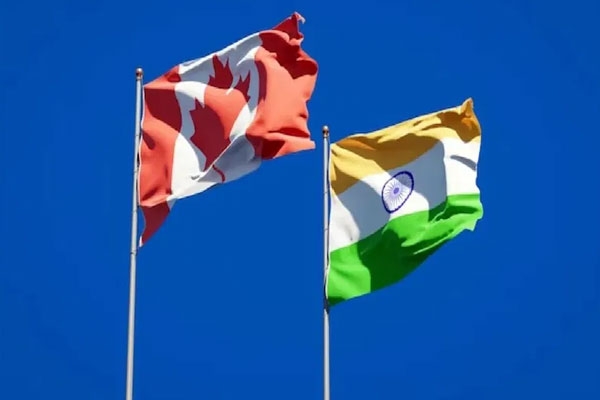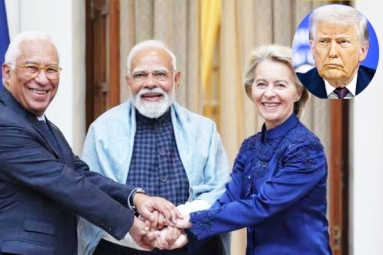
(Image source from: News9live.com)
India has firmly dismissed the most recent Canadian intelligence report that claims Indian involvement in foreign interference, characterizing it as "groundless," "politically motivated," and a "malicious attempt to tarnish a sovereign democracy." Senior government and intelligence officials in New Delhi indicated that the Canadian Security Intelligence Service (CSIS) report was released shortly after a diplomatic breakthrough between the two nations at the G7 Summit, suggesting that its timing was intentional to “satisfy separatist interests” and divert attention from Canada’s inaction against pro-Khalistan extremist factions operating openly within its territory.
“The CSIS report is categorically rejected by us. It is founded on fiction rather than facts, created for political gain,” stated top diplomatic sources within the government. “This issue transcends national security; it represents appeasement politics aimed particularly at Sikh voters as the anniversary of Hardeep Singh Nijjar’s death approaches.” Moreover, sources from the Indian establishment alleged that the administration of Canadian Prime Minister Mark Carney commissioned the report to mitigate domestic backlash following Indian Prime Minister Narendra Modi’s appearance at the G7 summit. They described the timing as “not coincidental,” pointing out that the report was released soon after Modi’s prominent participation on the global stage and the revival of diplomatic relations between New Delhi and Ottawa.
Indian officials expressed skepticism over the report's omission of Khalistani extremist organizations such as Sikhs for Justice (SFJ) and Khalistan Tiger Force (KTF), which India has designated as terrorist groups. “Canada has had no qualms about branding certain criminal organizations as terrorist groups, so why is there reluctance to identify Khalistani factions that advocate violence and have connections with Pakistan’s ISI?” one official queried. New Delhi has consistently accused Canadian authorities of neglecting credible evidence regarding these groups’ involvement in international crimes, including targeted assassinations in Punjab, and permitting their operations under the pretense of political activism.
Additionally, sources highlighted Canada’s “credibility deficit” in addressing terrorism, referencing its controversial actions after the 1985 Air India bombing, the deadliest terrorist attack involving a Canadian airline. “This is not the first occasion when Canadian intelligence agencies have opted to ignore extremism within their own territory,” remarked a senior intelligence official. India further criticized Canada for its failure to act on several Letters Rogatory (LRs)—formal requests for information and collaboration concerning fugitives and terrorism suspects residing in Canada. “Why does the CSIS report neglect to address the extensive list of Indian requests that remain unresolved with Canadian authorities?” questioned a source.
In response to allegations from Canada asserting that it possesses substantial evidence of interference by India, Indian representatives urged Ottawa to disclose its evidence openly. “Should there be any proof, it should be made available to the international community. Otherwise, it simply amounts to a campaign of defamation designed for domestic political gain,” the official stated. They cautioned that such allegations made for political reasons could hinder significant global counterterrorism initiatives and damage bilateral ties. “This type of misinformation only strengthens extremist factions and deteriorates mutual trust among countries. It is both reckless and myopic,” the source remarked.
The recent development occurs while India and Canada are in the process of mending diplomatic relations that were diminished following a dispute involving Justin Trudeau and the Khalistan matter, during which both countries reduced their embassy personnel in a reciprocal manner. As the two nations strive to repair their strained diplomatic connections, the implications of the CSIS report pose a risk to this delicate effort. Nevertheless, New Delhi has made its stance unmistakable: it will not tolerate “unfounded allegations intended to fulfill temporary political objectives.”







